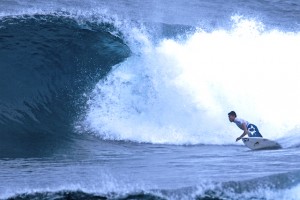Alarming Developments on West Philippine Sea says WWF
The dredging of coral reefs to build artificial islands in the West Philippine Sea has alarmed conservation group World Wide Fund for Nature (WWF).

In April 2013, poaching vessel F/V Min Long Yu destroyed 3902 square meters of seabed in the Tubbataha Reefs. Ongoing reclamation in a half-dozen reefs has now obliterated 1.2 million square meters – 310 times the damage wrought on Tubbataha.
Mechanical dredgers which cut, crush and compact corals have also stirred up sediments to smother adjoining reefs. This threatens the biological productivity of the West Philippine Sea – a spawning and feeding site for endangered sea turtles and high-value fish like tuna.
“A single square kilometer of healthy coral reef can generate 40 metric tonnes of seafood yearly. We have theoretically lost the ability to produce 48 metric tonnes year on year,” notes WWF-Philippines President and CEO Joel Palma. “In addition, legally-protected hard corals and giant clams are being harvested either for the curio trade or as a construction substrate. Corals and giant clams take decades, even centuries, to repopulate an area.”
WWF strongly condemns the continued degradation of the West Philippine Sea, which robs all six claimant nations of future fish yields. The Department of Foreign Affairs pegged economic loss from the damage at Php 4.5 billion annually.

A bustling commercial fishery, trade route and potential petroleum reserve, the West Philippine Sea is among Earth’s most productive but disputed marine ecosystems. Its three archipelagos – the Pratas, Paracel and Spratly island groups – are claimed by no less than six of the world’s fastest-developing economies – the Philippines, China, Taiwan, Malaysia, Brunei and Vietnam.
The region is a hotbed of protected and endangered species, including Green Sea Turtles (Chelonia mydas), Hawksbill Turtles (Eretmochelys imbricata) and True Giant Clams (Tridacna gigas). Rare seabirds like Red-footed Boobies (Sula sula) and Brown Boobies (Sula leucogaster) call the region’s few islands home.
WWF’s call is in line with its global ocean campaign, Sustain Our Seas, which builds on decades of work by the organization and its many partners on marine conservation. WWF is working with governments, businesses and coastal communities to revive oceans and sustain the livelihoods of billions of people worldwide.

This article is a press release from WWF Philippines. Subscribe to more travel news and adventures with Let’s Go Sago! by subscribing to our blog through email and liking the LGS Facebook Page. Follow our Twitter and Instagram accounts too!
More Stories
Sheraton Manila Hotel: ‘MEAT’ you this Father’s Day
This Father’s Day, make it a date with Dad at S Kitchen! (more…)
Sea Travel from Manila to Davao / General Santos vv Gets a Boost!
It's time for some sea travel as 2GO recently announce a boost to its operations in Davao and General Santos....
Peak Travel Reminders for the Lenten Break
Every year, Filipinos look forward to the Holy Week as a time to reflect and reunite with their families and...
Solo Traveller? Remember these Travel Tips from CIMB
Summer in the Philippines is fast approaching. But some do travel solo, either by predicament or by choice. (more…)
Fifth Forbes 5-Star Rating for Okada Manila
Okada Manila recently announced that it just got its 5th consecutive Forbes 5-star rating! (more…)
A Unique Hotel Staycation Experience at SEDA Manila Bay + Valentine Offerings
Recently, our ordinary weekend turned into something unique. (more…)


